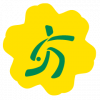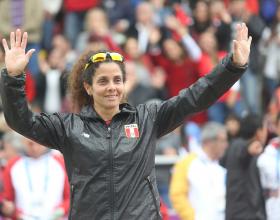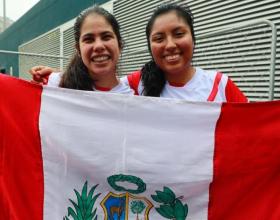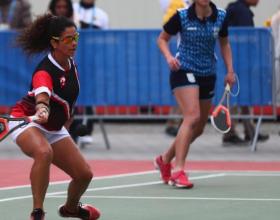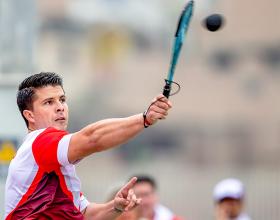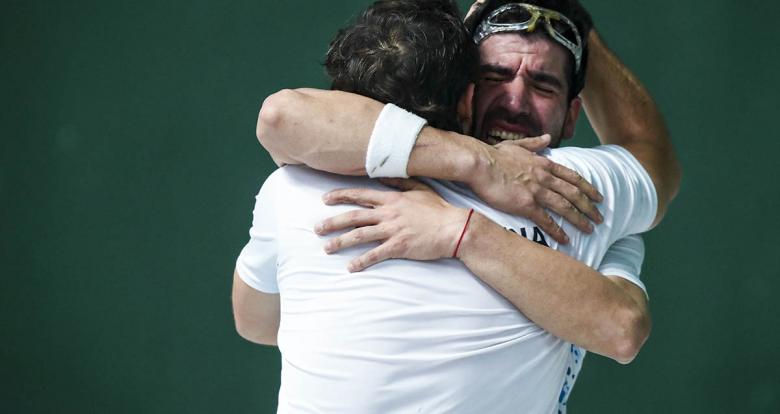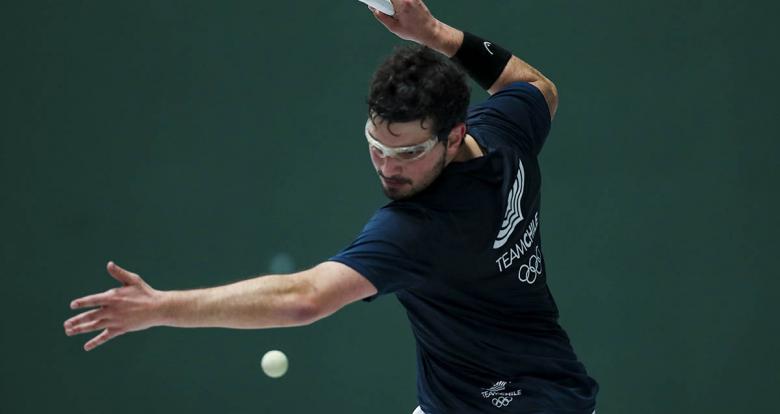
Basque Pelota
|
men events
|
women events
|
|---|---|
| Rubber Pelota - Doubles (Trinquete) | Rubber Pelota - Doubles (Trinquete) |
| Rubber Pelota - Singles (Fronton) | Rubber Pelota - Doubles (Fronton) |
| Frontenis - Doubles (Fronton) | Frontenis - Doubles (Fronton) |
| Leather Pelota - Doubles (Fronton) | Peruvian Fronton - Singles |
| Mano - Singles (Fronton) | |
| Peruvian Fronton - Singles |
|
men events
|
|---|
| Rubber Pelota - Doubles (Trinquete) |
| Rubber Pelota - Singles (Fronton) |
| Frontenis - Doubles (Fronton) |
| Leather Pelota - Doubles (Fronton) |
| Mano - Singles (Fronton) |
| Peruvian Fronton - Singles |
|
women events
|
| Rubber Pelota - Doubles (Trinquete) |
| Rubber Pelota - Doubles (Fronton) |
| Frontenis - Doubles (Fronton) |
| Peruvian Fronton - Singles |
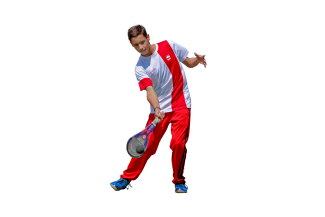
Played individually or in teams, Basque pelota’s goal is to hit the ball against the wall (“frontis”) to score points. It is played on a court called fronton and there is a variant called Trinquete, which is played on a closed court with an inclined roof on the side, and another one called Peruvian fronton.
Matches were played in sets (games), according to International Federation of Basque Pelota (FIPV) general rules of the sport. The pools made up of five teams played in a round-robin format.
In the pools made up of five teams, teams 3 and 4 compete for the bronze medal, and team 1 and 2 compete for the gold medal. For PGM fronton 30 meters (two pools of five teams), teams competed in criss- cross semifinals (1A vs. 2B; 1B vs. 2A). Then, the losers of these semifinals competed for the bronze medal and the winners competed for the gold medal.
Pools formed by six teams (two pools of three teams) played in criss-cross semifinals (1A vs. 2B; 1B vs. 2A). Then, the losers of these semifinals competed for the bronze medal and the winners competed for the gold medal.
General:
• The winning team of the match in two or three sets will receive 3 points.
• The losing team in two or three sets will receive 1 point.
Walk-over: 0 points.
Qualification:
1. According to the number of points received per match played.
2. In the event of a tie between several teams, according to the highest number of points obtained in the matches played by the teams involved. If two teams are still tied, the winner of their match will qualify.
3. If three or more teams are still tied, the qualification will be:
a) according to the biggest difference between sets won and lost of the teams involved.
b) according to the difference between points won and lost (goal average) in the matches played by the teams involved.
c) the youngest team, considering the average age of each team’s players, provided that they have physically participated in the competition.
d) by draw.
Withdrawal: a country that has started the competition in a speciality, either in singles or doubles, and ceases to participate, will lose the points obtained in all played matches (submitting a withdrawal note).
“Jeu de paume” or “palm game” was played in the 13th century in some parts of France and it is estimated that multiple ball games, such as Basque pelota, Valencian pilota or tennis, derive from this sport.

Images


